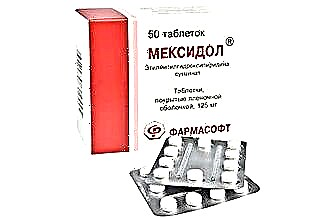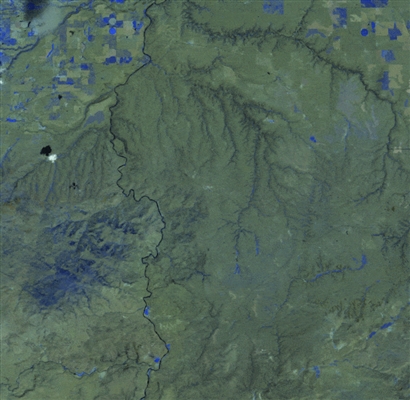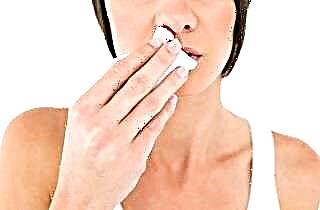A heavy smoker is easily recognizable by a persistent, characteristic cough. Getting rid of it is difficult enough. Even if you give up cigarettes completely, the cough will continue for some time. It may not go away at all if chronic diseases of the bronchi or lungs have developed. Therefore, it is better not to wait passively for improvement, but to check how the smoker's cough responds to treatment with folk remedies.
Main reasons
 Many believe that a smoker's cough is caused by the tar in cigarettes and accumulates in the lungs. Therefore, they buy so-called "lightweight" cigarettes, which, according to the manufacturer, contain a smaller amount of this substance. But tar is far from the only and not the main reason why people who systematically smoke cigarettes have an unpleasant painful cough.
Many believe that a smoker's cough is caused by the tar in cigarettes and accumulates in the lungs. Therefore, they buy so-called "lightweight" cigarettes, which, according to the manufacturer, contain a smaller amount of this substance. But tar is far from the only and not the main reason why people who systematically smoke cigarettes have an unpleasant painful cough.
Let's see what else destroys the body and, first of all, the upper respiratory tract of the smoker. Cigarette smoke contains:
- nicotine - causing a spasm of blood vessels, which impairs blood circulation;
- carbon monoxide (carbon monoxide) - causing blood cells to clump together, disrupting the supply of oxygen to cells and tissues;
- formaldehyde is a toxic substance that is used to create anatomical preparations, as it causes denaturation of proteins;
- radioactive substances - isotopes of polonium, cesium, bismuth, lead;
- poisons - arsenic, cyanide, hydrocyanic acid.
In addition, the temperature at the tip of a burning cigarette is about 800 degrees, and the constant inhalation of hot smoke causes irritation and burns of the lungs.
Regular simultaneous exposure to so many powerful negative factors can very quickly destroy the respiratory system. First of all, the delicate mucous membranes suffer, then the bronchi become inflamed, and later the lungs, which provide the entire body with oxygen.
Typical symptoms
 The opinion is also wrong that a smoker's cough occurs only after many years of regular cigarette use. Firstly, it is very individual and depends on many other factors: lifestyle, health status, nutritional system. Secondly, a cough appears as soon as the nasal mucosa is damaged, and this happens very quickly. It's just that at first the cough is not too noticeable, but over time it goes deeper and intensifies.
The opinion is also wrong that a smoker's cough occurs only after many years of regular cigarette use. Firstly, it is very individual and depends on many other factors: lifestyle, health status, nutritional system. Secondly, a cough appears as soon as the nasal mucosa is damaged, and this happens very quickly. It's just that at first the cough is not too noticeable, but over time it goes deeper and intensifies.
You can determine a smoker's cough by the characteristic symptoms, he:
- paroxysmal, dry and harsh;
- with difficult expectoration;
- the secreted sputum has brown tints;
- accompanied by shortness of breath and headaches.
The smoker's cough is especially pronounced and aggravated in the morning. And it can be cured only by completely abandoning cigarettes. Otherwise, any remedy will give temporary relief, and the inflammatory processes in the respiratory organs will continue.
No half-measures: buying thin and lightweight cigarettes, reducing the amount smoked per day, switching to electronic cigarettes are ineffective here.
 To allow the delicate tissues that make up the respiratory system to fully recover, you need to stop destroying them and start taking active measures that accelerate regeneration.
To allow the delicate tissues that make up the respiratory system to fully recover, you need to stop destroying them and start taking active measures that accelerate regeneration.
I would like to say a few words separately about electronic cigarettes. Yes, they do rule out several harmful factors. The smoke from them is water vapor, which has a lower temperature than tobacco, and does not contain tar and radioactive isotopes. But the concentration of nicotine in such cigarettes is several times higher, and the composition of chemical additives generally remains a mystery to the consumer.
The best folk recipes
 There are many popular ways to cure a cough as quickly as possible at home. It is simply unrealistic to bring them all here. Therefore, we have chosen only a few of the lightest and most effective, capable of arresting inflammatory processes, relieving irritation and facilitating the discharge of sputum:
There are many popular ways to cure a cough as quickly as possible at home. It is simply unrealistic to bring them all here. Therefore, we have chosen only a few of the lightest and most effective, capable of arresting inflammatory processes, relieving irritation and facilitating the discharge of sputum:
- Warm milk with honey. Milk should be fatty, preferably homemade. It is advisable to choose lime or buckwheat honey - it has the strongest anti-inflammatory properties. Boil a glass of milk, add a pinch of baking soda, a teaspoon of ghee and mix well. When it cools down to a comfortable temperature, add a teaspoon of honey, stir again and drink in small sips. Honey relieves irritation, soda softens cough and facilitates coughing, oil creates a protective film on the mucous membrane, and milk warms up the throat and is an excellent adsorbent of toxins.
- Herbal tea or herbal teas. Many herbs are known for their strong anti-inflammatory and wound healing properties. The most effective herbs for cough are: wild rosemary, thyme, chamomile, mint, raspberry, black currant. You can make a mixture from the listed herbs to your liking by mixing several plants in equal proportions. For brewing, take about a tablespoon of the mixture for half a liter of boiling water. The grass needs to be infused, so it is better to make the tea in a thermos or cover the kettle with a towel. You can add a teaspoon of honey to warm tea. Drink 3-4 glasses a day.
 Black radish juice. In addition to anti-inflammatory, it also has strong bactericidal properties, contains many vitamins and microelements. For treatment, you will need several large root crops. Wash the radish well, cut off the tail so that a cap is formed about 3 cm in diameter. Hollow out the middle of the radish with a teaspoon, leaving about 1 cm of pulp. Fill the vacant space with honey, cover with a lid with a tail and let it brew for 5-6 hours (you can leave it overnight). Take juice in a tablespoon 3-4 times a day. The course of treatment is 10-14 days, then take the same break and the cycle can be repeated 3-4 times.
Black radish juice. In addition to anti-inflammatory, it also has strong bactericidal properties, contains many vitamins and microelements. For treatment, you will need several large root crops. Wash the radish well, cut off the tail so that a cap is formed about 3 cm in diameter. Hollow out the middle of the radish with a teaspoon, leaving about 1 cm of pulp. Fill the vacant space with honey, cover with a lid with a tail and let it brew for 5-6 hours (you can leave it overnight). Take juice in a tablespoon 3-4 times a day. The course of treatment is 10-14 days, then take the same break and the cycle can be repeated 3-4 times.- Coniferous inhalation. Conifers perfectly cure all diseases of the upper respiratory tract, due to the high concentration of essential oils with powerful bactericidal properties. For inhalation, you can use fresh or dried young plant twigs. Place 3-4 tablespoons of chopped needles in a saucepan and bring to a boil over low heat. Remove from heat, cover your head with a towel and breathe over the steam. Instead of needles, you can pour 10-15 drops of coniferous essential oil (pine, cedar, thuja, fir) into hot water. Inhalation is done once a day, you can do it for a month.
- Ayurvedic tea. Quality green tea has very strong antioxidant properties. It helps neutralize toxins and the action of radioactive isotopes, stimulates the immune system, and has an anti-inflammatory effect. Its healing properties are greatly enhanced by adding honey, useful spices and spices to tea. It's easy to make Ayurvedic tea. Pour a teaspoon of tea leaves with a glass of water with a temperature of 70-80 0C, add a pinch of ground cinnamon, 2-3 cloves, 1-2 cm of finely chopped ginger root. Let it brew for 5-10 minutes, add a teaspoon of honey and drink in small sips.
 Anise milk. Anise essential oil can very quickly relieve an attack of even a strong lingering cough. As an ambulance, you can put a few drops on a sugar cube and put it under your tongue. But as a medicine, it is better to use it in combination with milk - in a warm form it penetrates deeper into the mucous membrane and the effect of the effect is enhanced. To prepare a cough mixture, you need to heat half a glass of milk to a temperature of 40-50 0C and drip up to 10 drops of anise oil.Drink in small sips and keep quiet for a few minutes so that your throat will completely calm down.
Anise milk. Anise essential oil can very quickly relieve an attack of even a strong lingering cough. As an ambulance, you can put a few drops on a sugar cube and put it under your tongue. But as a medicine, it is better to use it in combination with milk - in a warm form it penetrates deeper into the mucous membrane and the effect of the effect is enhanced. To prepare a cough mixture, you need to heat half a glass of milk to a temperature of 40-50 0C and drip up to 10 drops of anise oil.Drink in small sips and keep quiet for a few minutes so that your throat will completely calm down.- Thyme infusion. Helps even with tuberculosis. For many centuries in the villages, thyme has been used to treat any respiratory ailments. It has a very powerful expectorant effect, thanks to which it allows the smoker's lungs to quickly get rid of the thickened toxic mucus accumulated in them. Pour a tablespoon of dry thyme with a glass of boiling water and leave for 15 minutes in a thermos or teapot covered with a towel. Drink a glass twice a day for at least 14 days.
You can pick up other folk recipes, based on your own taste preferences. The main thing is to use them regularly and remember that they only help if you quit smoking once and for all.
Some features
 Treating a smoker's cough takes time and patience. In the first month after completely quitting cigarettes, it can even increase significantly. This is a physiological feature of the body - having felt the cessation of exposure to harmful factors, it begins to vigorously get rid of the remains of toxic substances.
Treating a smoker's cough takes time and patience. In the first month after completely quitting cigarettes, it can even increase significantly. This is a physiological feature of the body - having felt the cessation of exposure to harmful factors, it begins to vigorously get rid of the remains of toxic substances.
With the help of a strong cough, the bronchi are trying to "push" out the remnants of tar and accumulated mucus. Therefore, at this stage, the emphasis should be on expectorant drugs and folk remedies.
A smoker's cough should completely disappear after about 4-6 months, in advanced cases - after a year. If this does not happen, it is better to undergo a diagnostic examination. Most likely, due to smoking, serious chronic diseases of the upper respiratory tract have developed, which will have to be treated with traditional drugs. But it is better to finish what you started than to suffer all your life from an annoying cough.

 Black radish juice. In addition to anti-inflammatory, it also has strong bactericidal properties, contains many vitamins and microelements. For treatment, you will need several large root crops. Wash the radish well, cut off the tail so that a cap is formed about 3 cm in diameter. Hollow out the middle of the radish with a teaspoon, leaving about 1 cm of pulp. Fill the vacant space with honey, cover with a lid with a tail and let it brew for 5-6 hours (you can leave it overnight). Take juice in a tablespoon 3-4 times a day. The course of treatment is 10-14 days, then take the same break and the cycle can be repeated 3-4 times.
Black radish juice. In addition to anti-inflammatory, it also has strong bactericidal properties, contains many vitamins and microelements. For treatment, you will need several large root crops. Wash the radish well, cut off the tail so that a cap is formed about 3 cm in diameter. Hollow out the middle of the radish with a teaspoon, leaving about 1 cm of pulp. Fill the vacant space with honey, cover with a lid with a tail and let it brew for 5-6 hours (you can leave it overnight). Take juice in a tablespoon 3-4 times a day. The course of treatment is 10-14 days, then take the same break and the cycle can be repeated 3-4 times. Anise milk. Anise essential oil can very quickly relieve an attack of even a strong lingering cough. As an ambulance, you can put a few drops on a sugar cube and put it under your tongue. But as a medicine, it is better to use it in combination with milk - in a warm form it penetrates deeper into the mucous membrane and the effect of the effect is enhanced. To prepare a cough mixture, you need to heat half a glass of milk to a temperature of 40-50 0C and drip up to 10 drops of anise oil.Drink in small sips and keep quiet for a few minutes so that your throat will completely calm down.
Anise milk. Anise essential oil can very quickly relieve an attack of even a strong lingering cough. As an ambulance, you can put a few drops on a sugar cube and put it under your tongue. But as a medicine, it is better to use it in combination with milk - in a warm form it penetrates deeper into the mucous membrane and the effect of the effect is enhanced. To prepare a cough mixture, you need to heat half a glass of milk to a temperature of 40-50 0C and drip up to 10 drops of anise oil.Drink in small sips and keep quiet for a few minutes so that your throat will completely calm down.

